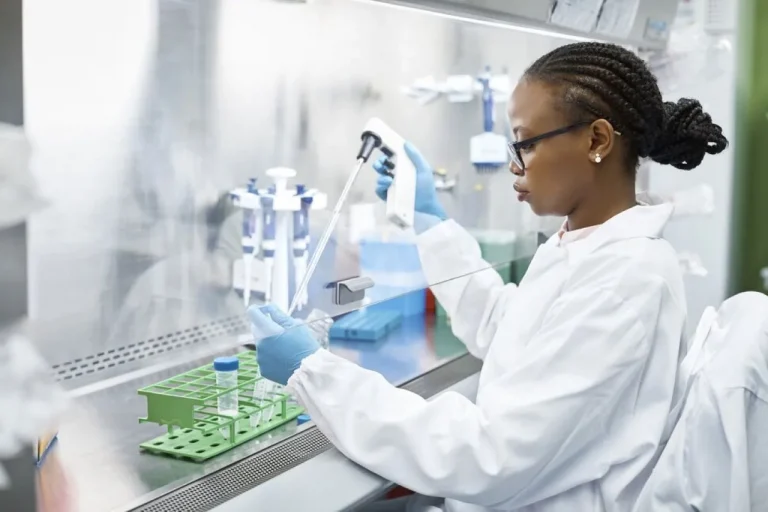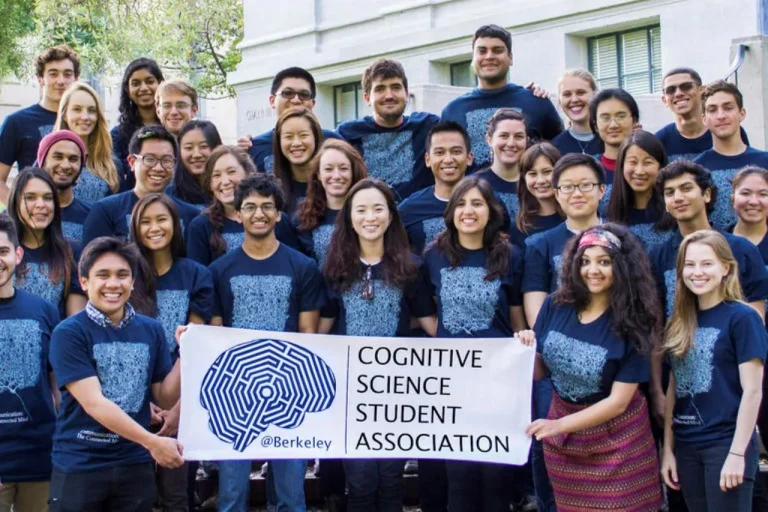Is Exercise Science A Hard Major?
If you’re considering a major in exercise science, you may be wondering how challenging the coursework is and whether it’s the right choice for you. In this comprehensive guide, we’ll break down the various aspects of an exercise science degree and look at just how difficult this popular major really is.
If you’re short on time, here’s a quick answer: Exercise science is generally considered a challenging major due to its blend of science-heavy courses and demanding practical components. However, it’s very manageable for students with an interest in health, anatomy, and fitness.
Defining Exercise Science
Exercise Science is an interdisciplinary field that combines various aspects of anatomy, physiology, biomechanics, and exercise physiology to understand how the human body responds to physical activity and exercise.
It is the scientific study of the effects of exercise on the human body, both in terms of performance enhancement and overall health.
Anatomy and Physiology
An important component of Exercise Science is the study of anatomy and physiology. This involves understanding the structure and function of the human body, including the musculoskeletal system, cardiovascular system, respiratory system, and nervous system.
Students in this major learn about the different muscles, bones, and organs in the body, as well as how they work together during exercise.
Biomechanics and Kinesiology
Biomechanics and kinesiology are two subfields within Exercise Science that focus on the mechanics of human movement. Biomechanics involves the study of how forces act on the body during physical activity, while kinesiology examines the principles of human motion.
Students in this major learn about topics such as body mechanics, gait analysis, and the principles of movement efficiency.
Exercise Physiology
Exercise Physiology is another key area of study in Exercise Science. It involves understanding how the body responds and adapts to exercise. This includes studying topics such as energy systems, cardiovascular responses to exercise, and the physiological changes that occur in the body during different types of physical activity.
Exercise Physiologists often work with athletes, individuals with chronic diseases, and those looking to improve their overall fitness.
Rigorous Science Prerequisites
In order to pursue a major in Exercise Science, students should be prepared for a rigorous curriculum that includes a strong foundation in various scientific disciplines. These prerequisites ensure that students have the necessary knowledge and skills to excel in their coursework and future careers.
The following are some of the key science prerequisites that students can expect to encounter:
Biology
Biology is a fundamental science course that provides students with an understanding of the principles of life and living organisms. In an Exercise Science program, biology courses often cover topics such as cell biology, anatomy, physiology, and genetics.
These courses lay the groundwork for understanding how the human body functions and responds to exercise. Students may also explore topics related to nutrition and metabolism, which are essential components of exercise and fitness.
Chemistry
Chemistry is another crucial prerequisite for Exercise Science majors. It provides students with a solid understanding of the chemical processes that occur within the human body. Courses in general chemistry and biochemistry are common requirements.
These courses delve into topics such as chemical reactions, molecular structure, and the metabolism of nutrients. Understanding these principles is essential for comprehending the physiological effects of exercise on the body.
Physics
Physics is often a challenging but necessary prerequisite for Exercise Science majors. It focuses on the laws and principles that govern motion, energy, and force. Physics courses help students understand concepts such as biomechanics, which is the study of how forces act on the body during movement.
These courses also explore topics such as exercise physiology and the principles of exercise prescription. Understanding the physics behind exercise is vital for designing safe and effective training programs.
For more information on Exercise Science prerequisites, you can visit the websites of reputable institutions offering Exercise Science programs, such as ACE Fitness and NSCA.
Challenging Upper Division Coursework
Exercise Science is often considered a challenging major due to its rigorous upper division coursework. Students pursuing this major are required to take advanced courses in various subjects related to human anatomy, physiology, biomechanics, and research methods.
Advanced Anatomy and Physiology
One of the core components of Exercise Science is the study of advanced anatomy and physiology. Students delve deeper into the complex structures and functions of the human body, exploring topics such as musculoskeletal, cardiovascular, and respiratory systems.
These courses require a solid foundation in biology and chemistry, and students are often required to memorize intricate details of the human anatomy.
Biomechanics
Biomechanics is another challenging aspect of Exercise Science. This field focuses on the mechanics of human movement and how forces and motions affect the body. Students learn about topics such as kinematics, kinetics, and the analysis of movement patterns.
Understanding the principles of biomechanics is crucial for designing effective exercise programs and preventing injuries.
Research Methods
Research methods are an integral part of Exercise Science as it is a field that heavily relies on evidence-based practices. Students are taught how to conduct research studies, collect data, and analyze results.
They learn about different research designs, statistical analysis, and how to critically evaluate scientific literature. These courses can be challenging as they require students to have a strong grasp of statistical concepts and research methodologies.
It is worth noting that while Exercise Science may be a challenging major, it is also a highly rewarding field of study. Graduates have the opportunity to make a significant impact on individuals’ health and well-being by applying their knowledge in various settings, such as sports performance, rehabilitation, and public health.
For more information on Exercise Science and its coursework, you can visit https://www.acsm.org/.
Demanding Practical Components
Exercise Science is a major that combines theoretical knowledge with hands-on practical experience. Students pursuing this major can expect to engage in various demanding practical components that enhance their understanding of the subject matter and prepare them for future careers in the field.
These practical components include lab sessions, internships, and certifications.
Lab Sessions
Lab sessions are an integral part of an Exercise Science major. In these sessions, students have the opportunity to apply the theories they learn in the classroom to real-life scenarios. They can gain hands-on experience with equipment, perform experiments, and analyze data.
Lab sessions not only reinforce the theoretical concepts but also allow students to develop critical thinking and problem-solving skills in a practical setting. Furthermore, they provide a platform for students to collaborate with their peers and engage in interactive learning experiences.
Internships
Internships play a crucial role in the development and growth of Exercise Science students. They provide students with the opportunity to gain practical experience in a professional setting. During internships, students may work alongside experienced professionals, assisting them in conducting research, administering fitness assessments, and developing exercise programs.
These experiences allow students to apply their knowledge in real-world situations, develop a deeper understanding of the field, and build valuable connections within the industry. Internships also provide students with the chance to explore different career paths and determine their areas of interest within Exercise Science.
Certifications
In addition to academic coursework, Exercise Science majors often pursue various certifications to enhance their credentials and increase their employability. Certifications such as Certified Strength and Conditioning Specialist (CSCS) or Personal Trainer (CPT) can provide students with specialized knowledge and skills that are highly valued in the fitness industry.
These certifications require students to demonstrate their understanding of exercise science principles, practical application, and ethical practices. Obtaining certifications not only shows dedication and commitment to the field but also opens up opportunities for greater career advancement.
Benefits of Majoring in Exercise Science
Choosing a major can be a difficult decision, but for those interested in health, fitness, and the human body, pursuing a degree in exercise science can be a rewarding and fulfilling choice. Here are some of the key benefits of majoring in exercise science:
1. Diverse Career Opportunities
A major in exercise science opens up a wide range of career opportunities. Graduates can work in settings such as hospitals, rehabilitation centers, sports teams, fitness centers, and research institutions.
They can become personal trainers, strength and conditioning specialists, exercise physiologists, cardiac rehabilitation specialists, or even pursue further education in fields like physical therapy or sports medicine.
2. In-Demand Field
The field of exercise science is growing rapidly, as more and more people recognize the importance of physical activity and healthy living. According to the Bureau of Labor Statistics, the employment of exercise physiologists is projected to grow by 11% from 2018 to 2028, much faster than the average for all occupations.
This means that exercise science graduates are in high demand and can expect a favorable job market upon graduation.
3. Making a Positive Impact
One of the most rewarding aspects of majoring in exercise science is the opportunity to make a positive impact on people’s lives. By helping individuals improve their fitness, recover from injuries, or manage chronic conditions through exercise, exercise science professionals play a crucial role in promoting health and well-being.
Being able to witness the positive changes in their clients’ lives can be incredibly fulfilling.
4. Continuous Learning
Exercise science is a field that is constantly evolving. New research and advancements in technology provide opportunities for exercise science professionals to continuously learn and stay up-to-date with the latest discoveries and techniques.
This ensures that professionals in this field are always at the forefront of knowledge and can provide the best possible care and guidance to their clients.
5. Personal Health Benefits
Majoring in exercise science not only benefits others but also has personal health benefits. As students learn about the principles of exercise, nutrition, and human physiology, they can apply this knowledge to their own lives and make informed choices to improve their own physical well-being.
By practicing what they preach, exercise science majors can lead by example and inspire others to live healthier lives.
Conclusion
In conclusion, exercise science is generally considered a difficult major due to its blend of complex science courses and rigorous practical elements. However, for students with an interest in health, fitness, and the human body, the challenge is very manageable and rewarding.
With hard work and dedication, an exercise science degree opens doors to various careers in healthcare, fitness, and beyond.
While demanding, the experiences and knowledge gained from an exercise science major provide graduates with a strong foundation to work in athletic training, physical therapy, strength and conditioning, and more exciting fields.







